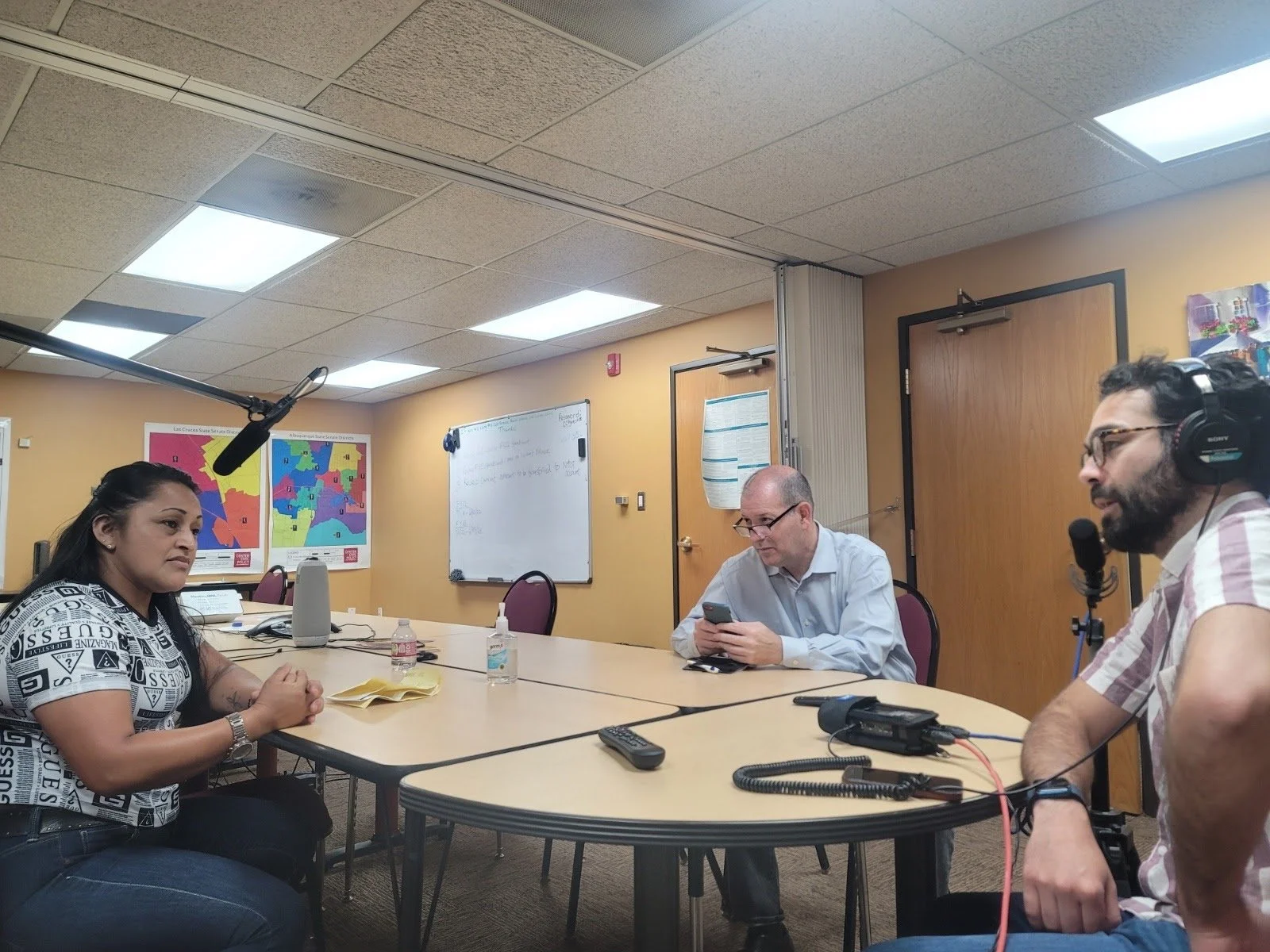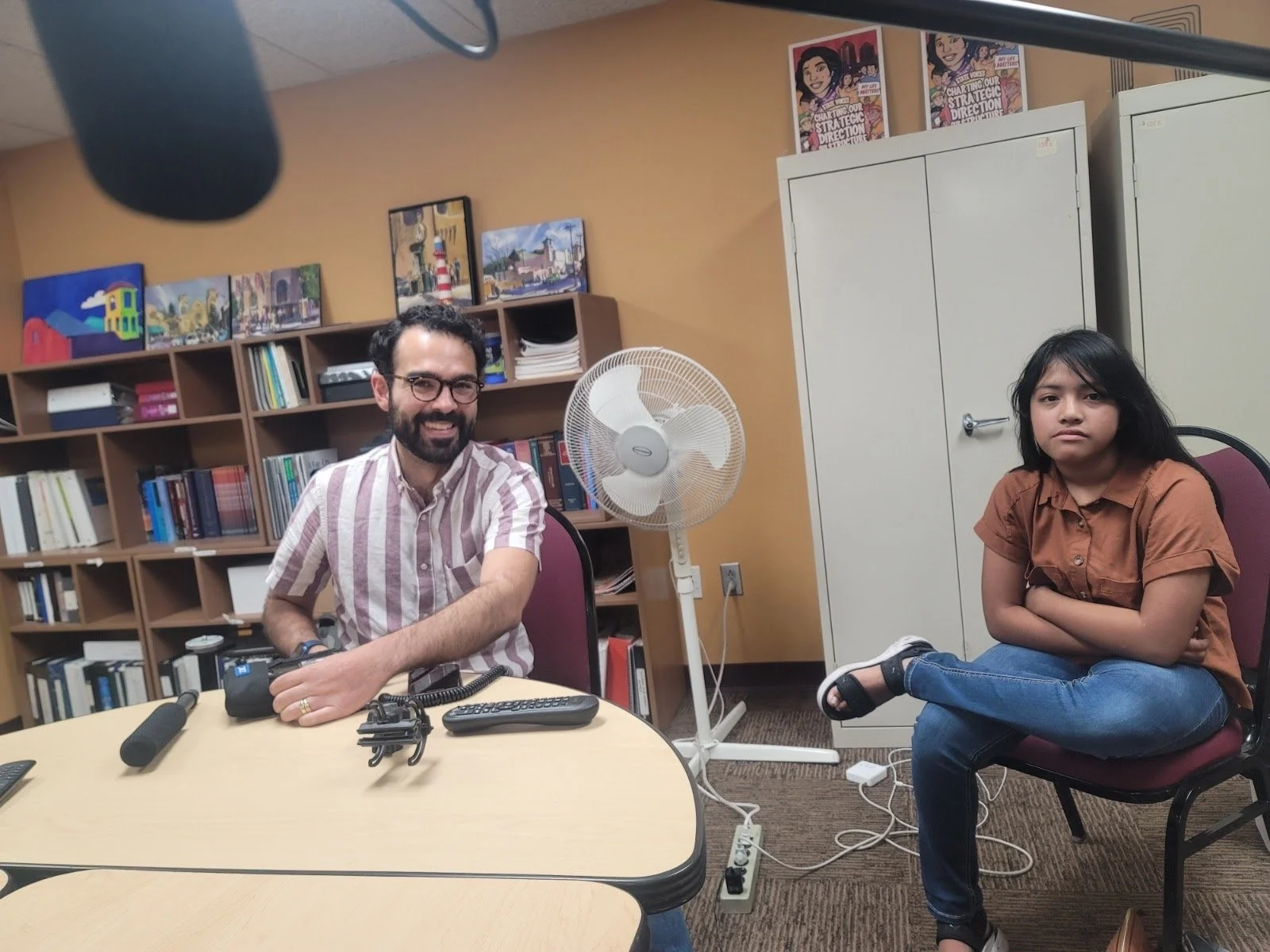Social Media Kit for Century Lives Podcast Season 4
Please use the materials in this packet to promote Century Lives Season 4 within your network. You may adapt or use the materials in full or in part. For questions, please contact Kate Rarey (kate.rarey@palisadesmv.com).
Episode release timeline:
Episode 1: November 1st
Episode 2: November 8th
Episode 3: November 15th
Episode 4: November 29th
Episode 5: December 6th
Episode 6: December 13th
Relevant links:
Descriptive text of season 4:
How do we extend longer, healthier lives to more Americans? It is a fundamental goal of society to afford everyone the chance for a long, productive life, but it is a challenge that we are not yet meeting, as life expectancy diverges enormously across states, counties, towns, and even neighborhoods. And, there is not a single cause of these inequities as some might imagine. Research shows that they are the cumulative consequences of inequalities that begin before birth and extend into late life—and represent the cumulative impact of poverty and disadvantage. Ultimately, until we contemplate the full scope of the challenge, it will be hard to offer anything more than piecemeal solutions.
In Season 4 of Century Lives, we investigate a “A Lifetime of Inequality:” the crucial disparities in life expectancy that come as the result of the decisions our society makes—or doesn’t make. Over six episodes, starting in early life and extending across the lifecourse, we’re going to be looking at the big choices that can have enormous impact on the course of our lives.
Descriptive text of individual episodes:
More episode descriptions will be uploaded as episodes are released
EP1, “New Mexico Could Not Hear the Train”: In Episode 1 of Century Lives Season 4: A Lifetime of Inequality, we visit Albuquerque, New Mexico, to explore the impact of early childhood education on lifelong health. The story looks at the impact of high quality early childhood education on health, and then follows the 12-year effort to pass Constitutional Amendment 1—an amendment to fully fund childhood education for all children in the state.
EP2, "It Takes a Village": As it turns out, a person's lifelong health and longevity take root even before they are born. Preterm birth and low birth weight are connected with a range of medical issues that span the life course—including all-cause mortality. But when it comes to maternal and infant health, complications for Black mothers and babies far surpass those of other demographics. In Episode 2, we head to Los Angeles County to find out why—and to learn how the African American Infant and Maternal Mortality Initiative is working fiercely to improve health outcomes for Black mothers and babies.
EP3, “Heat is (Not) My Jam”: In Episode 3 of Century Lives Season 4: A Lifetime of Inequality, we go to Phoenix, Arizona, to understand how it is that the built environment can have great consequences for lifelong health and longevity. We focus our story on trees, which are abundant in wealthy North Phoenix, and almost completely absent in South Phoenix—instead replaced by concrete, warehouses, railroads, highways and the like. In Episode 3, we discuss how climate change is only exacerbating the situation, and how the consequences affect predominantly poverty-level Black and Latino people.
EP4, "The Emerald Necklace": In Episode 4, we explore how the built environment—and trees—impact communities. Renowned landscape architect Frederick Law Olmstead designed Buffalo, New York around its parks, and it was once considered the best-designed city in America. But in the mid-20th Century, one of his parkways was torn out and replaced with a highway that connected downtown with the new suburbs, in the name of urban renewal. We explore the impact of the highway on the surrounding community and traffic safety for automobiles and pedestrians alike. The city plans to put a cap on the highway to restore the urban parkway—and Frederick Law Olmstead's vision. But is it too late?
EP5: Obesity rates have exploded in the US over the past half century, with negative consequences for healthy longevity. In Episode 5, we travel to rural Arkansas, where we visit countless dollar stores and explore the impact of ultra-processed foods on the obesity epidemic. We also examine potential solutions – from anti-obesity medication to Food Is Medicine interventions – as we begin to tackle obesity as a disease and not a personal choice.
Ep6: Copy coming soon!
Social media assets
Twitter posts
Always tag: Stanford Center on Longevity, Longevity Project, AARP, NCOA.
For general season promotion:
Tweet this! How do we extend longer, healthier lives to more Americans? In Century Lives: “A Lifetime of Inequality” we will investigate the crucial disparities in life expectancy that come as the result of the decisions our society makes—or doesn’t make. Learn more: https://longevity.stanford.edu/century-lives/.
Tweet this! Life expectancy diverges enormously across states, counties and towns—yet there is no single cause. In Century Lives: "A Lifetime of Inequality," we will investigate the disparities that occur across the lifecourse, and explore how we might address them: https://longevity.stanford.edu/century-lives/.
For episode 1:
Tweet this! What is the impact of early childhood education on lifelong health? In Ep1 of Century Lives: A Lifetime of Inequality, we explore how a group of organizers in Albuquerque won a 12-year fight to fully fund childhood education in the state. Listen now! https://longevity.stanford.edu/century-lives/.
Tweet this! How does early childhood education impact lifelong health? In Ep1 of Century Lives: A Lifetime of Inequality, we travel to Albuquerque, New Mexico, where one group of advocates won a 12-year fight to fully fund childhood education in the state. Listen now! https://longevity.stanford.edu/century-lives/.
For episode 2:
Tweet this! This week on Century Lives: A Lifetime of Inequality, we dive into the importance and impact of access to prenatal care. Travel with us to Los Angeles County, where one initiative is working fiercely to improve health outcomes for Black mothers and babies: https://longevity.stanford.edu/century-lives/.
LinkedIn/Facebook posts
Always tag: Stanford Center on Longevity, Ken Stern, AARP, NCOA.
For general season promotion:
How do we extend longer, healthier lives to more Americans? It is a fundamental goal of society to afford everyone the chance for a long, productive life, but it is a challenge that we are not yet meeting, as life expectancy diverges enormously across states, counties, towns, and even neighborhoods. And, there is not a single cause of these inequities as some might imagine. Research shows that they are the cumulative consequences of inequalities that begin before birth and extend into late life—and represent the cumulative impact of poverty and disadvantage. Ultimately, until we contemplate the full scope of the challenge, it will be hard to offer anything more than piecemeal solutions.
The @Stanford Center on Longevity is proud to present Season 4 of Century Lives: “A Lifetime of Inequality,” where we will discuss the crucial disparities in life expectancy that come as the result of the decisions our society makes—or doesn’t make. Over six episodes, starting in early life and extending across the lifecourse, we’re going to be looking at the big choices that society makes, that can have enormous impact on the course of our lives. Learn more here: https://longevity.stanford.edu/century-lives/.
For episode 1:
In Episode 1 of Century Lives Season 4: A Lifetime of Inequality, we visit Albuquerque, New Mexico, to explore the impact of early childhood education on lifelong health. The story looks at the impact of high quality early childhood education on health, and follows the 12-year effort to pass Constitutional Amendment 1: an amendment to fully fund childhood education for all children in the state. Check it out now: https://longevity.stanford.edu/century-lives/.
For episode 2:
As it turns out, a person's lifelong health and longevity take root even before they are born. Preterm birth and low birth weight are connected with a range of medical issues that span the life course—including all-cause mortality. But when it comes to maternal and infant health, complications for Black mothers and babies far surpass other demographics. In Episode 2 of Century Lives: A Lifetime of Inequality, we head to Los Angeles County to find out why—and to learn how the African American Infant and Maternal Mortality Initiative is working fiercely to improve health outcomes for Black mothers and babies. Check it out now: https://longevity.stanford.edu/century-lives/.
Episode graphics
More episode graphics will be uploaded as the season progresses.
Photos from the road
Episode 1: Albuquerque, New Mexico
Episode 2: Los Angeles County, California
Please contact Kate at kate.rarey@palisadesmv.com for additional collateral, or with any questions.












